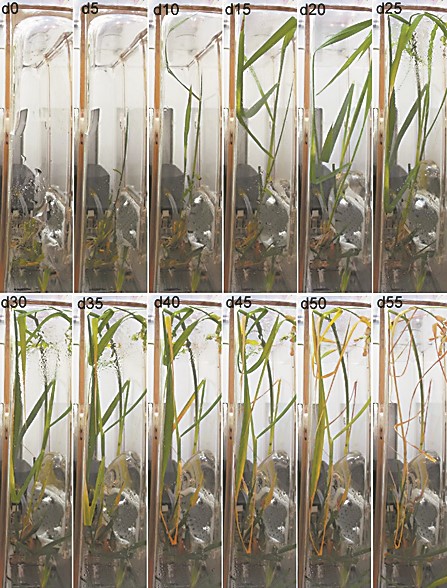
Chinese scientists have completed the process of?growing rice in space and obtained the seeds.?(PHOTO: CAS)
By?LIN?Yuchen
Chinese scientists have completed the process of growing rice in space and obtained the seeds through the Shenzhou-14 spaceship, which returned to Earth on December 4.
The Chinese Academy of Sciences (CAS) said this is a world first for harvesting rice seeds through space cultivation, following the successes of other crop species like arabidopsis, rape, wheat and peas.?
"The experiments lasted for 120 days in micro-gravity environments," said Zheng Huiqiong, researcher at CAS, adding that they recorded the full lifecycle of rice, from flowering to seeding, and discovered the effects of micro-gravity on a variety of agronomic traits including plant height, growth rate, water regulation and response to light.
According to the research, rice is expected to flower earlier in space than on the earth. The key genes that control flowering respond differently to micro-gravity environments compared with normal gravity on the ground.
"This provides a new direction for future use of modified flowering genes to promote plant adaptation to space micro-gravity environments," said Zheng.
The seeds of ratoon rice were also produced successfully in the experiments, opening new rooms for efficient production of space crops, said Zheng, adding that this is also world's first attempt of applying ratoon rice technology in space.
All collected seed samples will be transferred to the laboratory in Shanghai for further scientific research, according to the CAS.
The trio will conduct a series of experiments in fields such as life science, fluid physics, combustion science and materials science. Notably, this is the first time that fruit flies have been taken on a Chinese space mission as experimental subjects. What made scientists choose fruit flies? What experiment will they undergo?
